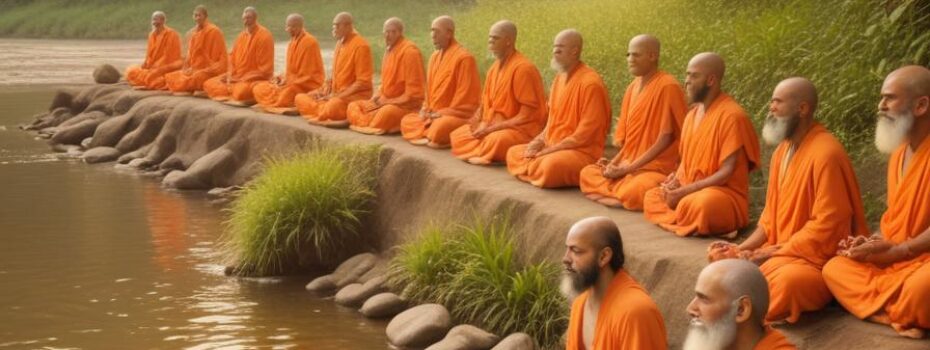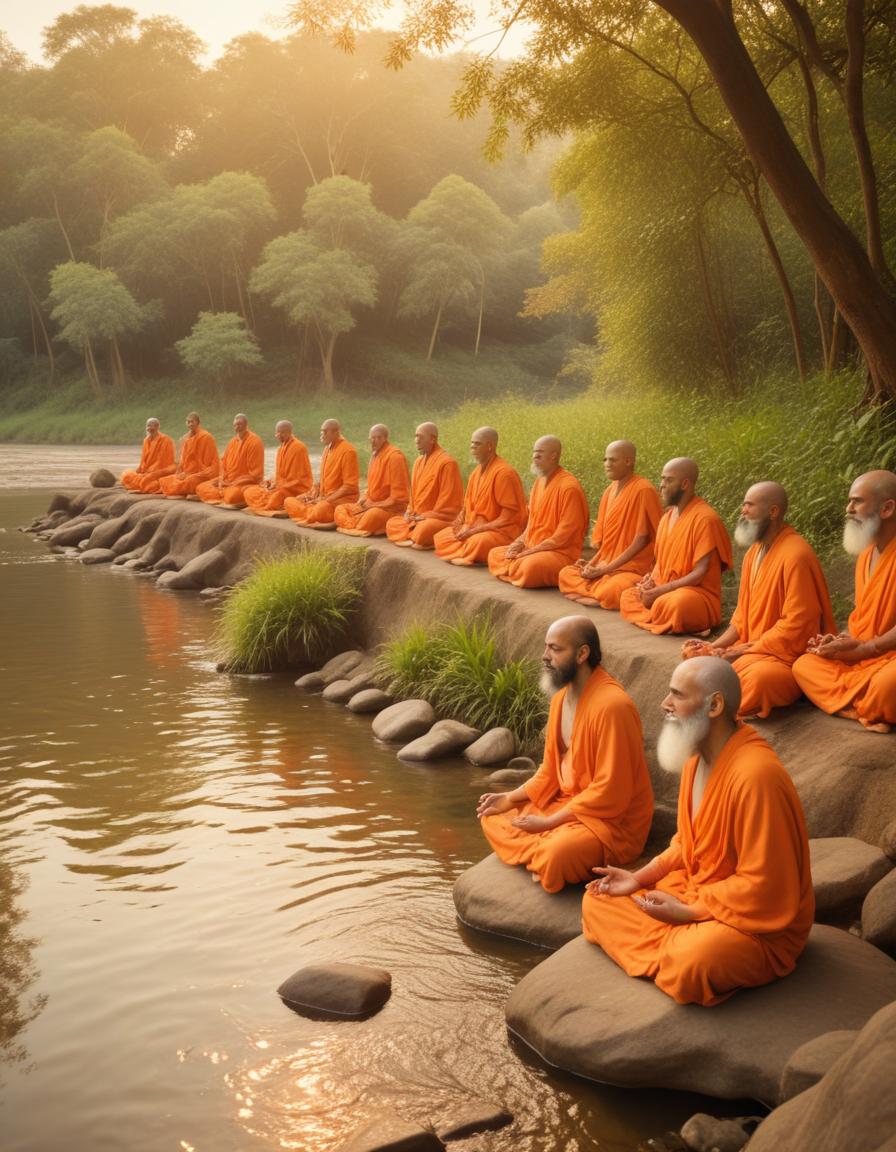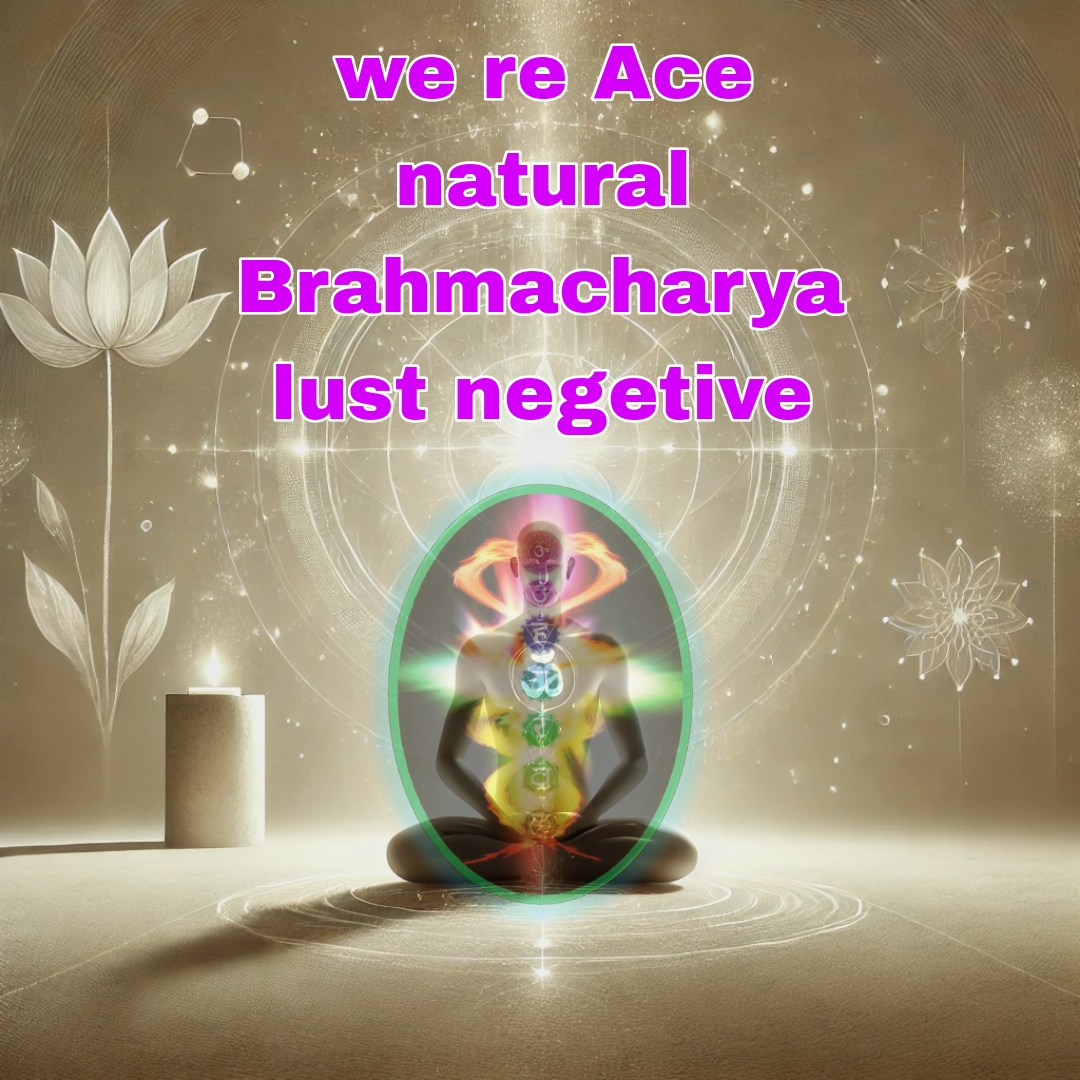As someone who identifies as an ace(asexual) and lust-negative, the concepts of celibacy, abstinence, and the absence of sexual attraction resonate on a personal level. It’s not uncommon for people to conflate or compare different ideas around celibacy and asexuality, and one such comparison often arises with the spiritual practice of Janam Jaat Brahmacharya. This term, deeply rooted in Indian spiritual traditions, refers to someone who is celibate by birth, living a life free from sexual desire. While this might sound similar to asexuality, there are key differences. As someone who naturally doesn’t experience sexual attraction, I’ve found it helpful to explore these concepts and understand where they overlap and where they diverge. Let’s try to find out difference between someone who identifies as asexual. What is Janam Jaat Brahmacharya? In spiritual traditions, particularly those rooted in Indian philosophy, Janam Jaat Brahmacharya refers to a state of lifelong celibacy that is believed to be inherent from birth. The term itself translates to “by birth” (Janam Jaat) and “celibacy” or “self-restraint” (Brahmacharya). Those who are considered Janam Jaat Brahmacharis are thought to naturally live without sexual desire or activity, often dedicating their lives to spiritual growth and higher purposes. Figures like Lord Hanuman from Hindu text are held up as examples of Janam Jaat Brahmacharis, individuals who never experience sexual urges and devote themselves fully to their divine or spiritual missions but with that it also indicates presence of asexuality and also there acceptance and honoured with respect in society, but the modern terms where not in ancient times, so we can consider Brahmacharya as a Broad term Whether in this lustful world many have faced injustice and also treated badly as a disease due to degraded perception and lustful world. For them, celibacy is seen as a path to spiritual purity and strength, a way to transcend worldly desires and focus on higher goals. What is Asexuality? Now, from the perspective of an asexual person, asexuality is quite different. It’s not about taking a vow or committing to celibacy for any spiritual reason. It’s about naturally not experiencing sexual attraction. It’s who I am, not something I consciously choose or practice. For someone who’s asexual, the absence of sexual attraction is just another way of being, much like how some people experience attraction and others don’t. Asexuality doesn’t necessarily mean avoiding relationships altogether. It simply means that the typical sexual desire that drives many people isn’t present for us. Some ace individuals might be in romantic relationships, some might not, but the key factor is that sexual attraction isn’t a part of our experience. The Overlap with No Sexual Desire and Brahmacharya At a surface level, there’s an obvious similarity between Janam Jaat Brahmacharya and asexuality neither involves sexual desire. Whether it’s a Janam Jaat Brahmachari who is celibate by birth or an asexual individual who doesn’t experience sexual attraction, both live without the drive for sexual relationships. As someone who is asexual and lust-negative meaning I don’t just lack sexual attraction but actively dislike the concept of lust it’s easy to understand why these ideas might be grouped together. Both reflect a lifestyle free from sexual desire, something that many in our highly sexualized world might find difficult to understand. The Differences is a difference and comparison Spiritual Discipline vs. Innate Orientation But despite the overlap, the key difference lies in the why and how behind this lack of sexual desire. 1. Innate vs. Spiritual Discipline: – For a Janam Jaat Brahmachari, celibacy is tied to spiritual purity and a higher purpose. It’s often seen as a divine gift or a form of self-discipline meant to channel energy toward spiritual goals. This is a very conscious, even sacred practice. – For me, as an asexual person, there’s no spiritual goal or discipline involved. It’s simply the way I am. I don’t experience sexual attraction, not because I’ve chosen to abstain or because I’m aiming for spiritual purity, but because it’s just not part of my identity but would like to join the path of the spiritual journey. 2. Choice vs. Nature: – The concept of Brahmacharya often involves a conscious decision to remain celibate, particularly for those who adopt Brahmacharya later in life. While a Janam Jaat Brahmachari might be considered naturally celibate from birth, the broader practice of Brahmacharya requires deliberate abstinence. – Asexuality, on the other hand, isn’t a choice. It’s a natural orientation. I didn’t wake up one day and decide that I would live without sexual attraction it’s simply the way my mind and body work. There’s no conscious effort required to “maintain” asexuality. It just is. 3. Cultural and Spiritual Significance: – In many cultures, particularly those influenced by Indian spiritual traditions, Brahmacharya is held in high regard. It’s often associated with purity, discipline, and even divine power. Someone practicing Brahmacharya might be revered for their ability to abstain from sexual desires. – Asexuality, however, is often misunderstood. In today’s society, being asexual can sometimes be seen as strange or “lacking,” and there’s still a long way to go in terms of understanding and acceptance. Many people don’t realize that sexual attraction isn’t universal and that it’s perfectly okay not to experience it. A Personal Reflection on Celibacy and Asexuality the reason to linking it as a broad term As an asexual, lust-negative individual, I find the idea of. Janam Jaat Brahmacharya intriguing. In some ways, it mirrors my own experience of not feeling sexual attraction, but the motivations and cultural context behind it are vastly different. For me, there’s no deeper meaning or spiritual pursuit behind my lack of sexual desire it’s just who I am. I live my life free from the pressures of lust or sexual expectations, not because I’m seeking enlightenment, but because that’s my nature. There’s something freeing about understanding that my experience is valid, whether or not it fits into traditional spiritual or societal norms. I don’t need a spiritual reason to explain my lack of desire,
Asexual and Lust-Negative The Journey of a Natural Brahmachari and what does it means ? In a world where sexual desires and romantic relationships are often placed at the center of human existence those who walk a different path often feel alienated misunderstood and undervalued. Among these individuals are those who identify as asexual and lust-negative, a combination that reflects not only a lack of sexual attraction but also an aversion to the very concept of lust itself. For many, this identity feels deeply spiritual, and they come to see themselves as modern-day Brahmacharis, navigating life in harmony with their innate principles. Understanding Asexuality and Lust-Negativity Asexuality, simply put, is the absence of sexual attraction. Asexual individuals may have relationships, experience romantic love, and enjoy deep emotional connections, but sex itself does not hold the same significance for them. Lust-negativity, on the other hand, goes a step further. It encompasses a deep discomfort or aversion toward sexual desire not just within themselves but often in the world around them. These individuals might feel that society’s obsession with lust distorts the purity of human relationships and personal purpose. For someone who is both asexual and lust-negative, the journey often feels like a calling. While the world around them is preoccupied with physical attraction, they remain focused on something higher whether it’s intellectual fulfillment, personal growth, or spiritual awakening. The Path of Natural Brahmacharya The concept of Brahmacharya derived from ancient Hindu philosophy, refers to the practice of celibacy, self-restraint, and dedication to a higher purpose. Traditionally, Brahmacharya was seen as a phase of life, a time when one devoted themselves to learning, spirituality, and inner purity. However, for those who identify as natural Brahmacharis, this is not just a phase it is a lifelong commitment, a state of being. Natural Brahmacharis do not suppress or fight their sexuality out of religious duty or societal expectations. Instead, they embrace asexuality and lust-negativity as a reflection of their true selves. Their lack of interest in sexual pursuits is not seen as a deficiency but as a powerful source of clarity and focus. They are free from the distractions that many others find consuming, allowing them to channel their energies into creative, intellectual, or spiritual pursuits. The Challenges of a Lust-Driven World Living in a society that idolizes romance and sexual fulfillment can be challenging for those who walk this path. Advertisements, movies, social media all glorify the idea that happiness comes from physical intimacy and the pursuit of romantic relationships. For asexual and lust-negative individuals, these messages often feel suffocating and alienating. They may struggle with the assumption that something is “wrong” with them, simply because they do not share the same desires as the majority. But for the natural Brahmachari, there is immense strength in resisting these pressures. It is an act of quiet rebellion, a refusal to conform to a narrative that doesn’t reflect their truth. Instead of seeking validation from a society that often misunderstands them, they find contentment in their own authenticity. Embracing Purity and Higher Purpose The natural Brahmachari’s life is one of dedication not to societal norms or fleeting pleasures, but to the cultivation of inner peace, knowledge, and spiritual growth. Their commitment to celibacy is not a sacrifice but a conscious choice that aligns with their values. By rejecting lust, they make room for deeper, more meaningful connections with others. Friendships and relationships are built on trust, respect, and emotional intimacy rather than physical attraction or desire. In many ways, the natural Brahmachari is a beacon of purity in a world overwhelmed by materialism and fleeting pleasures. They remind us that fulfillment doesn’t have to come from external sources, and that true happiness can be found within. Finding Strength in Solitude It is common for natural Brahmacharis to spend time in solitude, reflecting on their place in the world and cultivating a deeper connection with their inner selves. While this solitude can sometimes feel isolating, it is also a source of profound strength. The natural Brahmachari is not lonely they are alone with their thoughts, their purpose, and their commitment to living an authentic life. In their quiet moments, they find peace, contentment, and an unshakable sense of self. Walking the Path of the Natural Brahmachari For those who identify as asexual and lust-negative, their journey is one of self-acceptance, resilience, and spiritual growth. In a world that often tells them they are missing out on something essential, they stand firm in the knowledge that their path is just as valid, just as fulfilling, and just as worthy of respect. The natural Brahmachari walks through life with a unique sense of purpose one that is free from the distractions of lust and the expectations of society. Their path may be solitary at times, but it is also deeply profound, rooted in authenticity and a higher calling. They are proof that there is more than one way to live a meaningful and fulfilling life, and that true happiness comes not from conforming to the world around you, but from embracing who you truly are.




